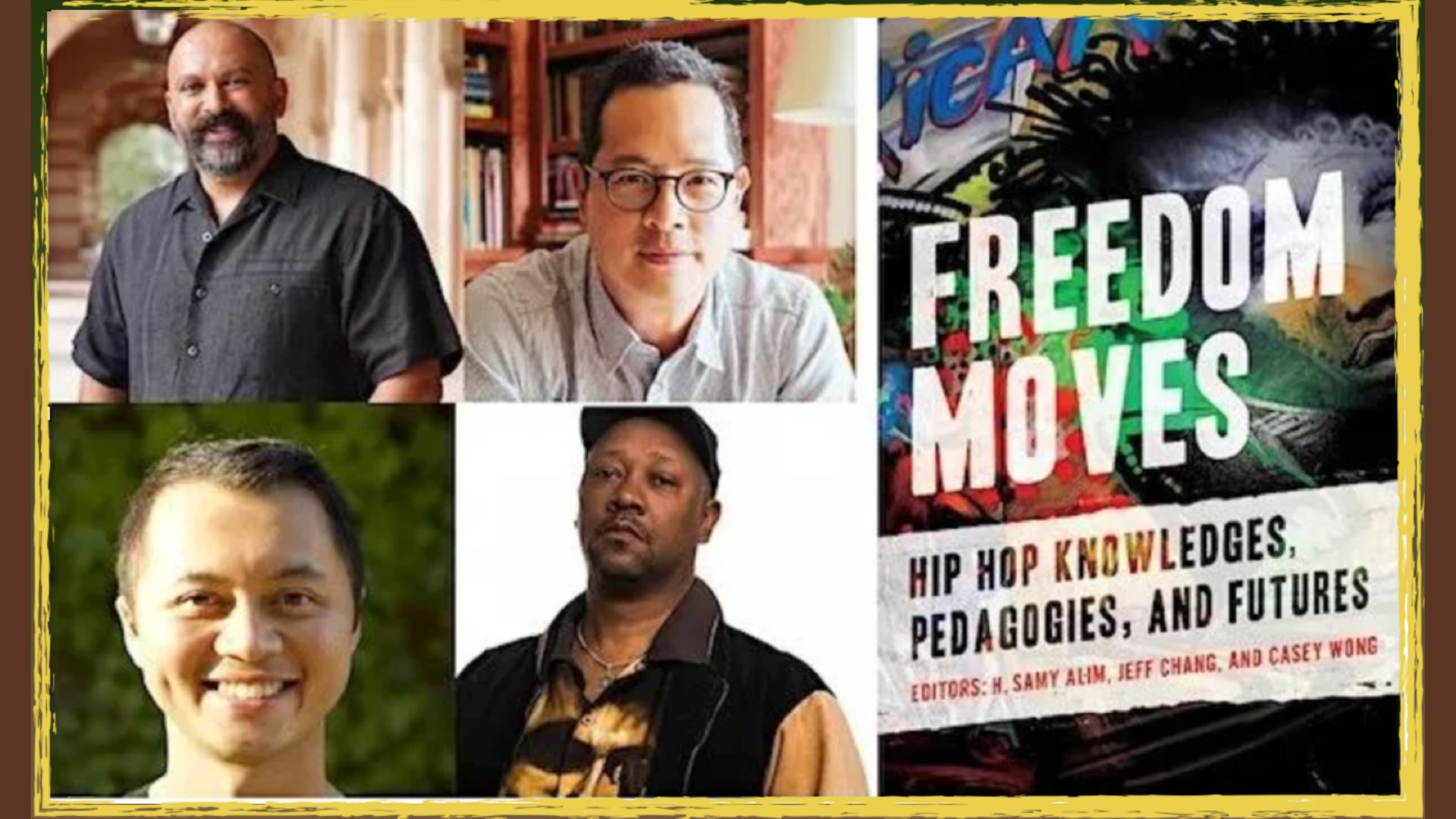“Freedom Moves: Hip Hop Knowledges, Pedagogies, and Futures” is a collaborative book by Jeff Chang, H Samy Alim, and Casey Philip Wong that explores the transformative power of hip-hop culture and how it can be used as a tool for education and social justice. We talked with all three authors about why the book was written, the key lessons within the book, its overall format and why its such an important book as Hip Hop celebrates 50 years.
The book is divided into three sections: “Pedagogies,” “Knowledges,” and “Futures,” each of which provides a unique perspective on the impact of hip hop on education and society. The authors argue that hip-hop is not just a musical genre but a cultural movement that embodies resistance, resilience, and creativity.
In the first section, “Pedagogies,” the authors explore how hip hop can be used as a tool for education. They argue that traditional educational approaches are often disconnected from the lived experiences of students, and that hip hop provides a way to engage students in learning by drawing on their cultural backgrounds and experiences. The authors highlight the importance of hip hop pedagogies in promoting critical thinking and social justice.
In the second section, “Knowledges,” the authors examine the different forms of knowledge that emerge from hip hop culture. They argue that hip hop is a way of knowing rooted in marginalized communities’ experiences and perspectives. The authors highlight the importance of recognizing and valuing this knowledge in educational settings.
Finally, in the third section, “Futures,” the authors look at the potential impact of hip hop on future generations. They argue that hip hop has the power to inspire social change and create a more just and equitable society. The authors highlight the importance of empowering young people to use hip hop as a tool for activism and social justice.
Overall, “Freedom Moves” is an insightful and thought-provoking book that provides a unique perspective on the transformative power of hip hop culture. It challenges traditional approaches to education and highlights the importance of valuing the knowledge and experiences of marginalized communities. The book is essential reading for anyone interested in hip hop culture, education, and social justice.


Leave a Reply